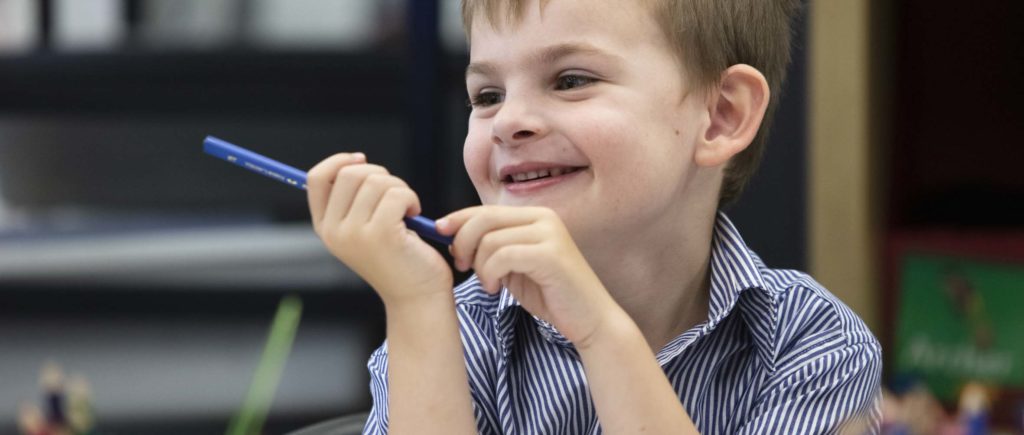We owe our kids optimism
This op-ed, by Deputy Headmaster and Head of Crowther Centre, Dr Ray Swann, was published in the Herald-Sun on 6 September 2021 with the headline, 'We owe our kids optimism'Every day this pandemics exacting a cost on our kids that is painful to witness. They are losing learning time, relationships, celebrations and the intangible – but vital – storehouse of shared childhood memories.
As the weeks and months drag on, we see the ongoing effect on their wellbeing and mental health. We hear about parents struggling to strike a balance between providing for their families and taking on the roles of teacher, motivator and counsellor.
No sport. No concerts. No parks for a period there. Disappointed and harried leaders. Violence on the streets of our capital cities.
Our kids understand there are many things we cannot do, but they actually want to know what can we do. We need clear leadership for our kids on the things we can all do right now.
Schools create certainty. Familiar faces, routines, uniforms, food and friends.
Students orient themselves to timetables and calendars, as well as challenges such as assessments. It’s all there at school, but right now there is uncertainty.
Where there is complexity in teaching, we often “chunk” things up. Where we find ways to simplify expression.
An example of this would be: “We’re currently in a two-week lockdown. This is what we need to do. Between now and the end of term, there are two, two-week blocks. We can get through this.”
As we heave from one uncertainty to the next, it seems to me that what is missing is a national narrative about what we are enduring together.
In World War II, families tuned in to Churchill’s radio messages. Famously full of inspiring rhetoric, Churchill’s words inspired people to keep going, to do their bit – and most of all, that there was hope.
When we create a simple message, which is then delivered by a respected leader, it provides comfort and certainty.
Our students look at their computer screens each day and they can see where things are up to and what they can do next.
It breaks down some of the unknowns and frames them (in this case in terms of time).
This helps to replace the missing daily messages kids receive at school.
What would be great to see from our national leaders, our PM, our premiers, is some positive messages for our students that comes from beyond school and home.
What are Australians like in adversity? Who are our champions? Howard Florey shared the Nobel prize for inventing penicillin. We have overcome the Spanish flu and polio.
We have one of the best healthcare systems in the world.
We recently have just had the Olympics and punched way above our weight. Could we invite Olympians as a part of a public campaign to take a strengths-based approach to facing our current adversity?
Our Paralympians have just finished competing in Japan. What are their messages for our children right now about facing challenge?
Let’s have an ad campaign to promote stories of positive success in the face of challenge to build confidence in our collective ability to face the pandemic.
And finally, our leaders need to create invitations for our students to find their voice.
Why not have our premiers invite our young people to take a positive and caring role for themselves, their families and especially their peers?
We are a nation that has prided itself on being inclusive and on having mateship.
What does that look like for our students?
How to reach out to their friends, how to care for themselves and others, how to give and how to ask for help in these troubling times – these will be the lessons students remember.
Our children, especially in Victoria, are bearing too much of the cost of these lockdowns and we owe them more than expecting blind compliance.
Our kids are looking hard at us adults right now.
They need all of us to show the way, including our national leaders. Our children are the future. They need to hear from our leaders that we can triumph over adversity, that we can help one another to get through this, and they have a role to play.
They deserve a sense of hope. It’s crucial.

